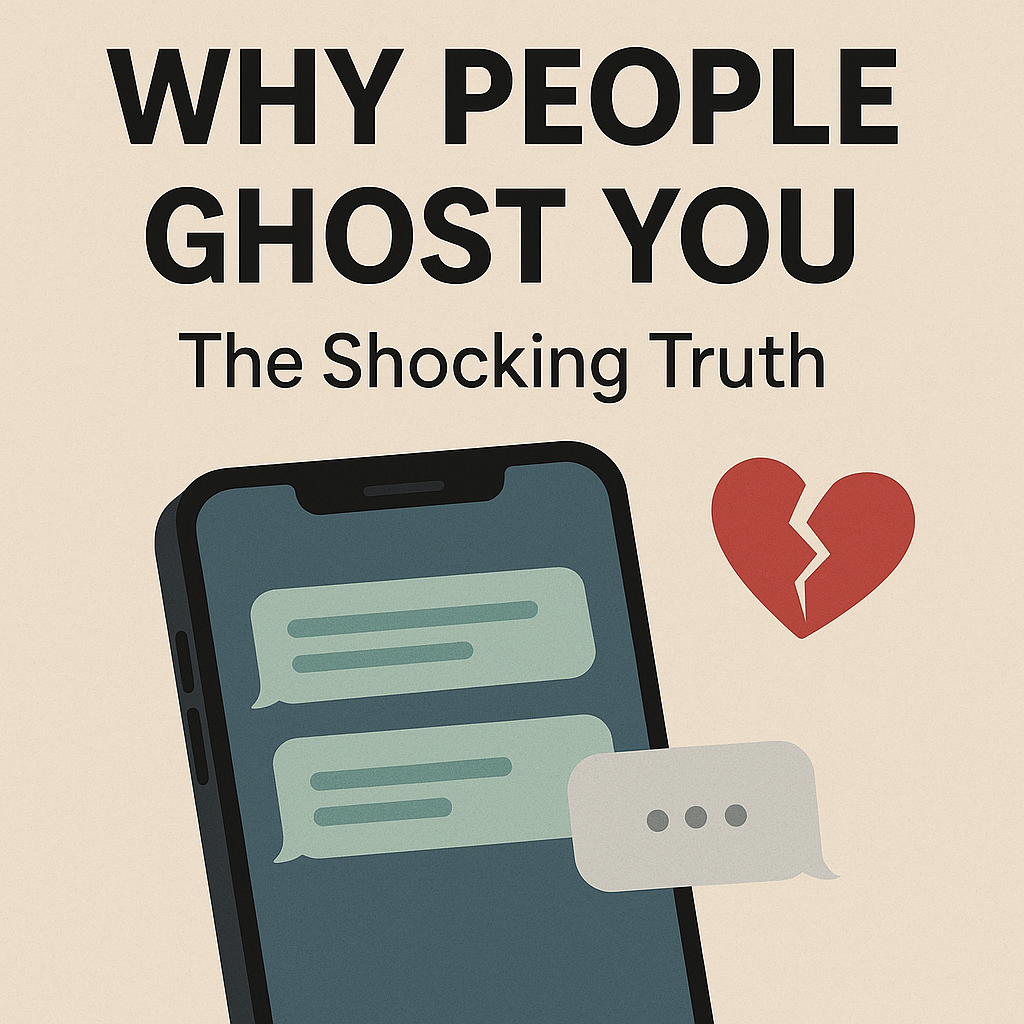
You’re messaging someone. The vibe feels right. You’re laughing, maybe flirting, maybe even making plans. Then—nothing. No replies. No explanation. Just silence. It’s called ghosting, and if it’s happened to you, you’re not alone.
Ghosting is more than just a modern dating trend. It’s a reflection of deeper psychological patterns, digital habits, and communication breakdowns. In this article, we’ll unpack why people ghost, how it affects you, and how to handle it without losing your mind—or your self-worth.
What Is Ghosting and Why Does It Hurt So Much?
Ghosting is the act of cutting off all communication with someone without warning or explanation. It can happen in dating, friendships, even at work. One day, you’re talking. The next, you’re left on read.
And it stings—badly.
Why? Because the brain hates uncertainty. When someone disappears without reason, your mind scrambles for answers. You wonder what you did wrong. You question your worth. Psychologists say ghosting activates the same brain regions associated with physical pain.
Dr. Jennice Vilhauer, a psychologist, notes:
“Ghosting is a form of emotional cruelty. It says, ‘You’re not worth an explanation.’”
The Psychology Behind Ghosting Behavior
So why do people ghost?
It’s rarely about you—and more about them. Here are the most common psychological reasons:
- Avoidance of conflict: They don’t want an uncomfortable conversation.
- Fear of confrontation: Ending things directly feels too hard.
- Low emotional intelligence: They lack the tools to communicate maturely.
- Narcissism or selfishness: They don’t consider how their actions impact others.
Attachment theory also plays a role. People with avoidant attachment styles tend to withdraw when things get emotional or complicated. Ghosting is a quick escape from vulnerability.
Digital Culture and the Rise of Ghosting
Apps like Tinder and Hinge make disappearing easy. There’s always another match, another DM, another option.
Swipe culture fuels the idea that people are disposable. Why work through awkwardness when you can just ghost and move on?
Research from Pew Research Center found that over 25% of adults have experienced ghosting in online dating. The anonymity of digital communication lowers empathy and accountability.
It’s not just about dating either—ghosting happens in jobs, friendships, and casual networking too.
Is Ghosting Always a Bad Thing?
Not always.
Sometimes, ghosting is a form of self-protection. For example:
- If someone feels unsafe
- If they’re dealing with manipulation or emotional abuse
- If they’ve set boundaries that were ignored
While honest communication is ideal, not everyone is emotionally equipped to handle it—especially in toxic dynamics.
Still, ghosting as a default strategy for avoiding tough talks? That’s a red flag.
How to Deal With Being Ghosted
Being ghosted can wreck your confidence, but you can come out stronger.
Here’s how:
- Don’t personalize it – Ghosting usually reflects their limitations, not your value.
- Don’t chase – Sending follow-ups rarely leads to closure.
- Let the silence speak – Their lack of effort is your answer.
- Reframe the story – You dodged someone who can’t communicate. That’s a win.
- Focus inward – Journal, talk it out, reconnect with yourself.
If the experience really hurt, consider speaking to a therapist. Ghosting can trigger deeper wounds, especially if you have past rejection trauma.
Can You Prevent Being Ghosted?
Not always. But you can lower the chances.
Try these:
- Set expectations early – “If you’re not feeling this, just say so.”
- Watch for red flags – Inconsistent replies, vague answers, emotionally distant.
- Be upfront yourself – Model the communication you want to receive.
- Avoid fantasizing too early – Stay grounded in what’s actually happening.
Ghosting can’t always be predicted, but strong boundaries and honest dialogue are your best armor.
Final Thoughts
Ghosting feels like a slap in the face wrapped in silence. But here’s the truth: it says more about them than it does about you. Their inability to communicate isn’t your burden to carry.
You deserve someone who can talk like an adult—even when it’s hard. And the next time someone ghosts you, remember: their silence is your closure.
Have you ever been ghosted?
Share your story in the comments or forward this article to a friend who needs to hear it.



